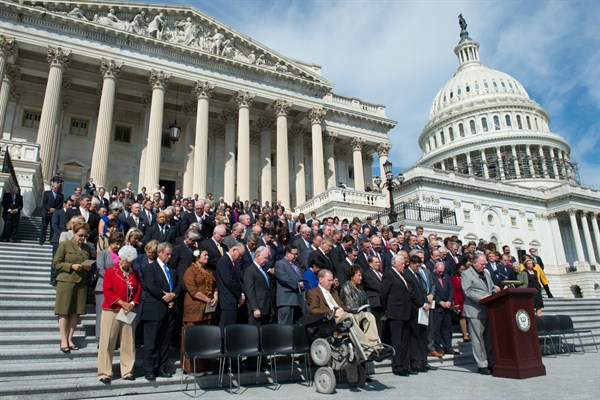Last week, President Donald Trump announced that John Bolton was replacing U.S. Army Lt. Gen. H.R. McMaster as assistant to the president for national security affairs, otherwise known as the national security adviser. While Bolton is a longtime government official, having served every Republican president since Ronald Reagan, his appointment was immediately condemned across the political spectrum, given his well-documented views as a war hawk.
Colin Kahl and Jon Wolfsthal, two veterans of the Obama administration, labeled him a “national security threat,” arguing that his “ascendance increases the risk of not one but two wars—with North Korea and Iran.” Writing in Slate, journalist Fred Kaplan warned, “It’s time to panic now.” And even conservative columnist George Will called Bolton “the second-most dangerous American” after Trump himself.
While the national security adviser is not in the official chain of command and cannot commit the United States to the use of force, the concern is, as Trudy Rubin put it, that Bolton might “give shape and consistency to Trump’s most reckless instincts,” particularly the president’s tendency to see military force as a quick and easy solution to complex security problems.

